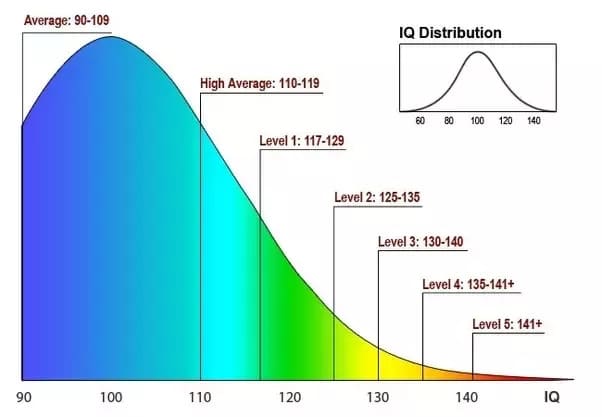Childhood Aspergers Syndrome Assessment Test
3 Min Free Childhood Aspergers Syndrome Assessment Test
Who Can Benefit From This Childhood Aspergers Syndrome Assessment Test?
The Childhood Asperger’s Syndrome Assessment Test can benefit parents, caregivers, or healthcare providers who suspect that a child may have symptoms of Asperger’s syndrome. The test can help identify possible symptoms, and provide guidance for further evaluation and treatment.
The Childhood Asperger’s Syndrome Assessment Test can also be helpful for mental health professionals and educators who work with children on the autism spectrum. It can assist in identifying possible symptoms, and provide guidance for further evaluation and treatment.

Childhood Aspergers Syndrome Assessment Test Accuracy

The accuracy of the Childhood Asperger’s Syndrome Assessment Test depends on several factors, including the quality of the questions, the honesty and self-awareness of the person taking the test, and the interpretation of the results.
It’s important to note that the Childhood Asperger’s Syndrome Assessment Test is not a substitute for a professional diagnosis by a licensed healthcare provider. While this test can provide helpful insights and indicators of possible symptoms, a professional diagnosis requires a comprehensive evaluation that takes into account a variety of factors, such as the child’s medical history, current symptoms, and personal circumstances.
Additionally, it’s important to note that children’s behavior can vary, and it’s not uncommon for children to exhibit certain behaviors or traits associated with Asperger’s syndrome without having the condition. Therefore, a professional evaluation by a licensed healthcare provider is necessary to make an accurate diagnosis.
Types of Childhood Aspergers Syndrome Assessment Test
Autism Diagnostic Observation Schedule (ADOS):
The ADOS is a standardized observational assessment tool used to diagnose autism spectrum disorders, including Asperger’s syndrome, in children. It is typically administered by a licensed healthcare professional.
Social Communication Questionnaire (SCQ):
The SCQ is a parent-reported questionnaire that assesses for different autism spectrum disorder symptoms, including those associated with Asperger’s syndrome.
Asperger Syndrome Diagnostic Scale (ASDS):
The ASDS is a diagnostic tool that assesses for symptoms associated with Asperger’s syndrome.
Childhood Autism Rating Scale (CARS):
The CARS is a diagnostic tool that assesses for different autism spectrum disorder symptoms, including those associated with Asperger’s syndrome.
Gilliam Autism Rating Scale (GARS):
The GARS is a diagnostic tool that assesses for different autism spectrum disorder symptoms, including those associated with Asperger’s syndrome.
Childhood Asperger Syndrome Test (CAST):
The CAST is a self-report questionnaire that is specifically designed to assess for symptoms associated with Asperger’s syndrome in children.
Treating Childhood Aspergers Syndrome
Asperger’s syndrome, a type of autism spectrum disorder, can be challenging to treat in children, but with the help of a healthcare provider, children with Asperger’s syndrome can learn strategies to manage their symptoms and improve their quality of life. Here are some common treatments for Asperger’s syndrome in children:
- Behavioral therapy: Behavioral therapy can help children with Asperger’s syndrome learn and practice social skills, such as reading facial expressions and nonverbal cues, maintaining eye contact, and engaging in reciprocal conversation.
- Occupational therapy: Occupational therapy can help children with Asperger’s syndrome develop the skills they need to perform daily tasks independently, such as grooming, dressing, and meal preparation.
- Speech and language therapy: Speech and language therapy can help children with Asperger’s syndrome improve their communication skills, such as expressive and receptive language, and reduce social communication difficulties.
- Parent training and support: Parent training and support can help parents learn strategies to manage their child’s behavior and improve family relationships.
- Medication: Medications, such as antidepressants or antipsychotics, may be prescribed to address symptoms of anxiety, depression, or irritability that are common among children with Asperger’s syndrome.

